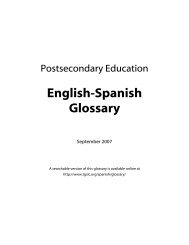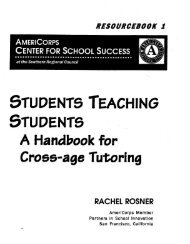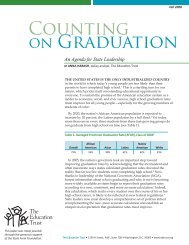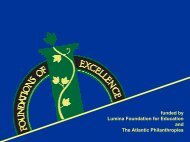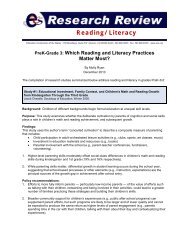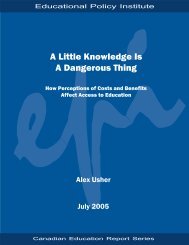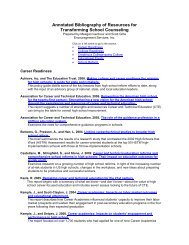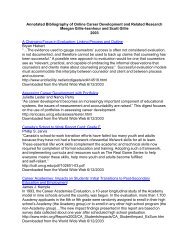Resistance Theory and the Transculturation Hypothesis
Resistance Theory and the Transculturation Hypothesis
Resistance Theory and the Transculturation Hypothesis
Create successful ePaper yourself
Turn your PDF publications into a flip-book with our unique Google optimized e-Paper software.
4explanations.Cultural Discontinuity Hypo<strong>the</strong>sisEmerging from <strong>the</strong> early work of anthropologists such as Franz Boas <strong>and</strong> BronislawMalinowski <strong>and</strong> finding refinement among individuals like Dell Hymes (1974), <strong>the</strong>cultural discontinuity hypo<strong>the</strong>sis is certainly <strong>the</strong> more popular of <strong>the</strong> two <strong>the</strong>oreticalorientations on cultural conflict found in <strong>the</strong> American Indian education literature. Thisframework emphasizes <strong>the</strong> differing <strong>and</strong> opposing micro-level cultural elements (i.e.,communication styles, social values, interpersonal behaviors) that ultimately impacteducational performance.The disjunction between non-Indian cultural expectations institutionalized inAmerican higher education <strong>and</strong> American Indian cultural traditions <strong>and</strong> ways initiallyplaces many American Indian students at a disadvantage in college (Deloria, 1978;Garcia & Goldenstein Ahler, 1992; Garrett, 1995; Pottinger, 1989; <strong>and</strong> Swisher &Deyhle, 1989). In fact, Jon Reyhner (1992) contends that micro-level culturaldiscontinuities are probably <strong>the</strong> leading cause for high American Indian educationalattrition rates. In scathing criticism, leading American Indian scholar Vine Deloria(1990) put <strong>the</strong> matter very bluntly:[Previous American Indian educational effort] resembles indoctrination more than it doesforms of teaching because it insists on implanting a particular body of knowledge <strong>and</strong> aspecific view of <strong>the</strong> world, which often does not correspond to <strong>the</strong> life experiences that[Native] people have or might be expected to encounter. (p. 16)4



